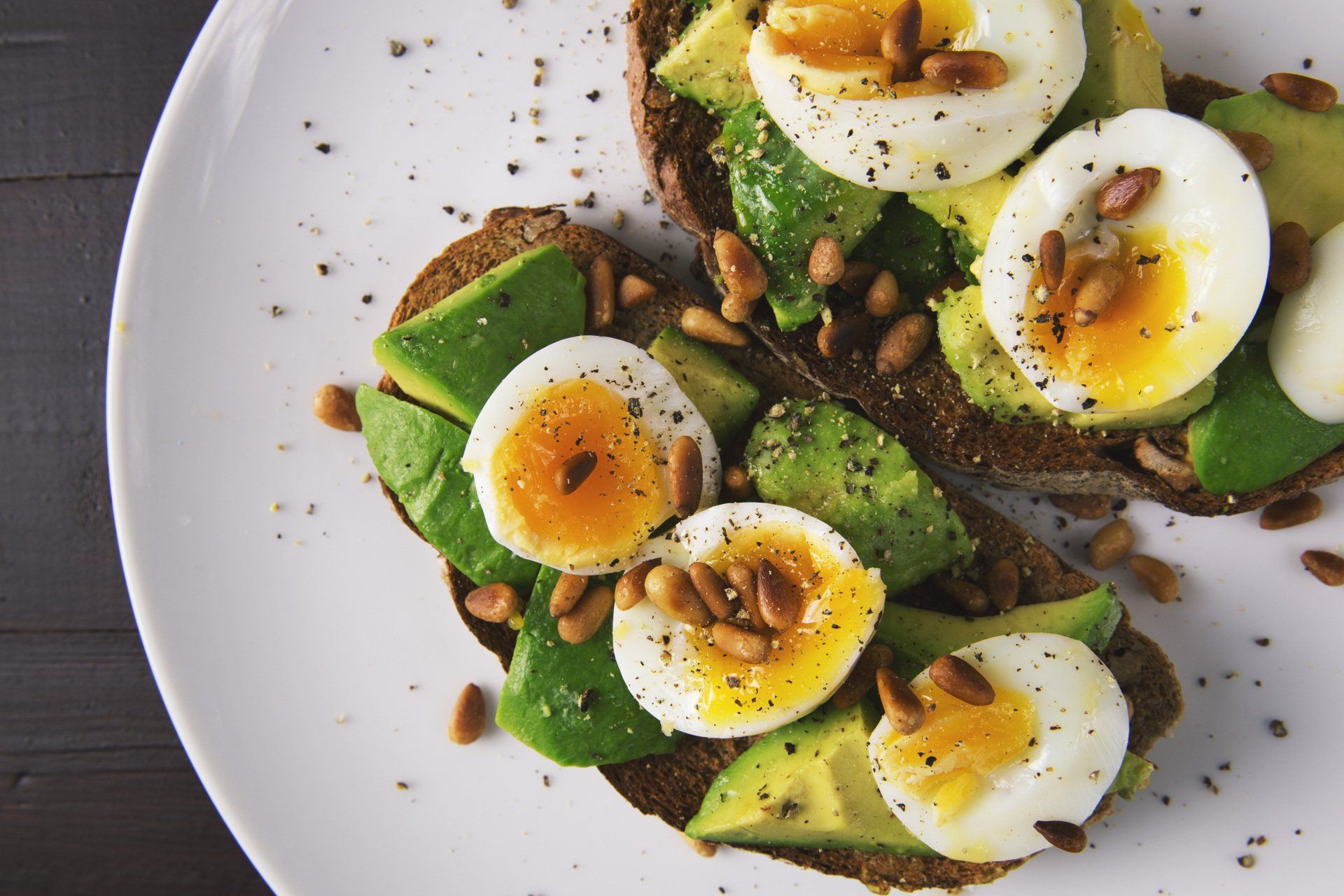Discover the Ideal Protein Intake for Maximal Muscle Gains
Unlock Your Muscle-Building Potential
Are you struggling to make progress in your muscle-building journey? It might be time to take a closer look at your protein intake. A protein-rich diet plays a crucial role in maximizing muscle gains, but it's important to find the ideal intake for optimal results. In this article, we will dive deep into the science of protein and uncover the secrets to unlocking your muscle-building potential.
By understanding the importance of protein in muscle growth and recovery, you can tailor your diet to meet your specific needs. We will explore the latest research and expert recommendations to help you determine the ideal protein intake for your goals. Whether you're a seasoned athlete or a beginner looking to pack on muscle, this article will provide you with the knowledge and tools to fuel your gains.
Get ready to revolutionize your muscle-building strategy with the power of protein. Say goodbye to plateaus and hello to sustainable progress. Prepare to optimize your workouts, enhance recovery, and unlock the gains you've been working so hard for. Let's embark on this protein-packed journey together and unleash your muscle-building potential.

Understanding the importance of protein in muscle building
Protein is often referred to as the building block of muscle, and for good reason. When you engage in resistance training, your muscles undergo microscopic damage. Protein is essential for repairing and rebuilding these damaged muscle fibers, leading to muscle growth and strength gains. Additionally, protein plays a crucial role in various physiological processes, including enzyme production, hormone synthesis, and immune function.
To optimize muscle building, it's important to consume an adequate amount of protein. Research suggests that a protein intake of around 0.7-1.0 grams per pound of body weight per day is sufficient for most individuals engaged in regular resistance training. However, this recommendation can vary depending on several factors.
How much protein do you really need?
Determining your ideal protein intake can be a bit of a puzzle. While the general guideline of 0.7-1.0 grams per pound of body weight is a good starting point, individual needs can differ based on factors such as age, gender, body composition, activity level, and overall goals.
For example, if you're aiming for maximal muscle gains or in a calorie deficit during a cutting phase, you might benefit from a slightly higher protein intake. On the other hand, if your primary goal is to maintain muscle mass while in a calorie surplus, a slightly lower protein intake may still be sufficient.
It's important to note that exceeding your protein needs does not necessarily result in more muscle growth. The body has a limit to how much protein it can effectively utilize for muscle synthesis. Consuming excessive protein can lead to increased calorie intake, potentially hindering fat loss or causing other health issues.
Factors that affect protein requirements
In addition to the general guidelines, several factors can influence your protein requirements. Let's take a closer look at some of these factors:
- Body Weight and Composition: Individuals with more lean muscle mass typically have higher protein needs as muscle tissue requires protein for growth and repair.
- Activity Level: If you engage in intense exercise or have a physically demanding job, your protein requirements may be higher to support muscle recovery and prevent muscle breakdown.
- Age: Older individuals may require a higher protein intake to counteract age-related muscle loss and preserve muscle mass.
- Training Intensity and Frequency: If you're training more frequently or with higher intensity, your protein needs may increase to support muscle repair and adaptation.
- Goals: Whether you're aiming to build muscle, lose fat, or maintain your physique, your protein intake should align with your specific goals.
By considering these factors, you can fine-tune your protein intake to suit your individual needs and optimize your muscle-building potential.
The role of timing in protein intake
While meeting your daily protein needs is crucial, the timing of your protein intake can also impact muscle growth and recovery. The concept of nutrient timing suggests that consuming protein at strategic times can enhance muscle protein synthesis and improve recovery.
Research suggests that consuming protein within the first few hours following a workout, known as the "anabolic window," can stimulate muscle protein synthesis and accelerate recovery. This is why many athletes and bodybuilders prioritize post-workout protein intake.
However, it's important to note that the anabolic window is not as narrow as once believed. Studies indicate that as long as you meet your daily protein requirements, the exact timing of protein intake may not be as critical. That being said, spreading your protein intake evenly throughout the day can still be beneficial for muscle growth and maintenance.

The best sources of protein for muscle building
Now that we understand the importance of protein and how much we need, let's explore some of the best sources of protein for muscle building:
- Lean Meats: Chicken, turkey, lean beef, and pork are excellent sources of high-quality protein. They are also rich in essential amino acids, which are the building blocks of protein.
- Fish: Fatty fish like salmon, tuna, and mackerel not only provide protein but also contain omega-3 fatty acids, which have anti-inflammatory properties and support overall health.
- Dairy Products: Milk, Greek yogurt, cottage cheese, and whey protein powder are all rich sources of protein. They also contain calcium, which is important for bone health.
- Eggs: Eggs are a complete protein source, meaning they contain all essential amino acids. They are also packed with vitamins and minerals.
- Plant-Based Proteins: If you follow a vegetarian or vegan diet, there are plenty of plant-based protein sources available, such as legumes, tofu, tempeh, quinoa, and seitan.
Incorporating a variety of these protein-rich foods into your diet can ensure you're getting a wide range of essential amino acids and other nutrients necessary for muscle growth and recovery.
Protein supplements: Are they necessary?
Protein supplements, such as whey protein powder, have gained popularity in the fitness industry. While whole food sources should always be the foundation of your diet, protein supplements can be a convenient and effective way to increase your protein intake, especially for individuals with higher protein requirements or those who struggle to meet their needs through food alone.
Whey protein, in particular, is highly bioavailable and quickly absorbed by the body, making it an excellent choice for post-workout recovery. Other popular protein supplements include casein protein, soy protein, and plant-based protein powders.
However, it's important to note that supplements should never replace whole foods. They should be used to supplement a balanced diet rather than serve as the sole source of nutrition. Always consult with a healthcare professional or registered dietitian before incorporating supplements into your routine.

Protein intake for different fitness goals - bulking, cutting, and maintenance
Your protein intake can vary depending on your specific fitness goals. Let's explore how protein requirements differ for bulking, cutting, and maintenance phases:
- Bulking: During a bulking phase, where the goal is to gain muscle mass, a higher protein intake may be beneficial. Aim for the higher end of the recommended protein range (around 1.0 gram per pound of body weight) to support muscle growth and repair.
- Cutting: When in a calorie deficit for fat loss, maintaining muscle mass becomes crucial. To minimize muscle loss, it's recommended to increase your protein intake slightly (around 1.0-1.2 grams per pound of body weight) while reducing overall calorie intake.
- Maintenance: If your goal is to maintain your current physique, aim for the lower end of the protein range (around 0.7-0.8 grams per pound of body weight) to support muscle maintenance and overall health.
By adjusting your protein intake based on your goals, you can support your body's needs and optimize your results.
Common mistakes to avoid when it comes to protein intake
While protein is essential for muscle building, there are some common mistakes that individuals make when it comes to their protein intake. Avoiding these mistakes can help you maximize your gains:
- Neglecting Other Macronutrients: While protein is important, it's crucial to also consume an adequate amount of carbohydrates and healthy fats. These macronutrients provide energy, support hormone production, and aid in overall health.
- Relying Solely on Supplements: As mentioned earlier, protein supplements should complement a well-rounded diet, not replace whole food sources.
- Overemphasizing Protein at the Expense of Micronutrients: While protein is important, it's equally important to consume a variety of fruits, vegetables, and whole grains to ensure you're getting all the necessary vitamins, minerals, and antioxidants.
- Not Adjusting Protein Intake Based on Goals: As we discussed earlier, your protein needs may vary depending on your specific goals. Adjusting your protein intake accordingly can help you optimize your results.
By avoiding these common mistakes, you can ensure that you're making the most out of your protein intake and supporting your muscle-building efforts.
Tracking your protein intake: Apps and tools to help you stay on track
Keeping track of your protein intake can be a useful tool to ensure you're meeting your daily requirements. Fortunately, there are several apps and tools available to help you simplify the process:
- MyFitnessPal: This popular app allows you to track your daily food intake, including protein, and provides a comprehensive database of foods and their nutritional values.
- Cronometer: Cronometer is another app that enables you to track your protein intake, along with other macronutrients and micronutrients. It provides detailed nutrition breakdowns and allows for customization based on individual needs.
- Food Scales: Investing in a food scale can help you accurately measure your portion sizes, ensuring you're consuming the desired amount of protein.
By using these tools and monitoring your protein intake, you can stay on track and make adjustments as needed.
Conclusion: Optimizing protein intake for maximal muscle gains
Protein plays a vital role in muscle building and recovery. By understanding the importance of protein, determining your ideal intake, and incorporating high-quality protein sources into your diet, you can unlock your muscle-building potential.
Remember, individual protein needs can vary based on factors such as body weight, composition, activity level, and goals. Adjusting your protein intake accordingly and considering the timing of protein consumption can further enhance your results.
While protein supplements can be a convenient way to increase your protein intake, they should never replace whole food sources. Always strive for a balanced diet that includes a variety of protein-rich foods, along with other macronutrients and micronutrients.
Track your protein intake using apps and tools to ensure you're meeting your daily requirements and making progress towards your muscle-building goals.
By optimizing your protein intake, you can fuel your gains, push past plateaus, and unlock your true muscle-building potential. Say goodbye to frustration and hello to sustainable progress. Get ready to transform your physique and achieve the results you've been working so hard for. It's time to unlock your muscle-building potential!

